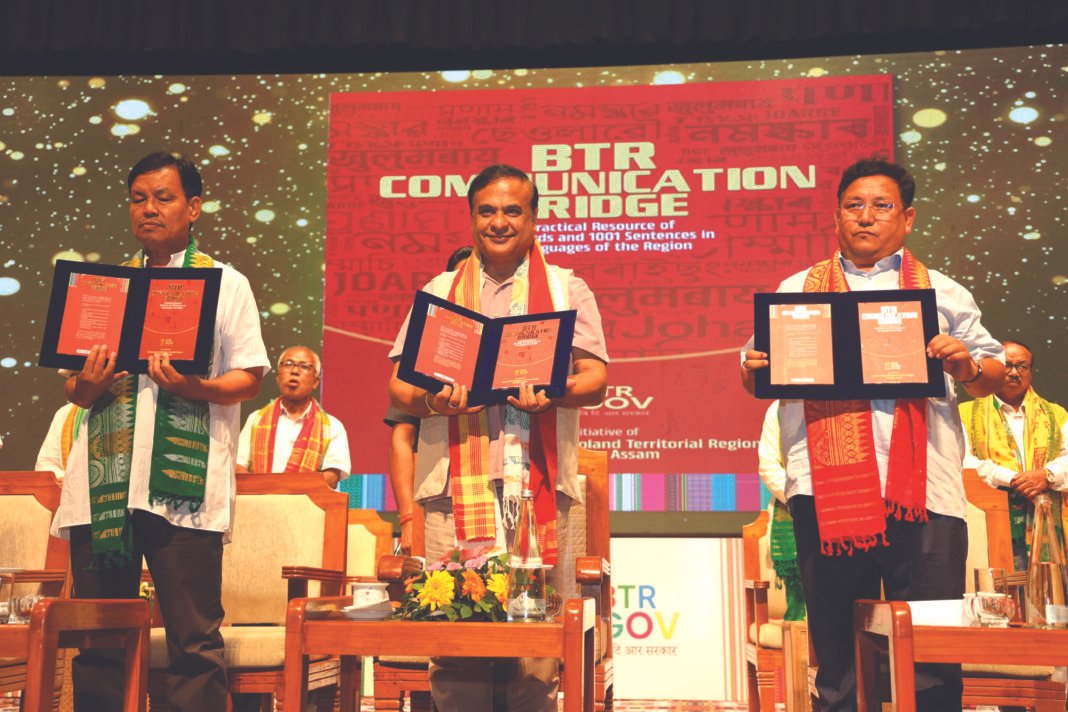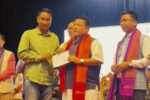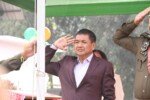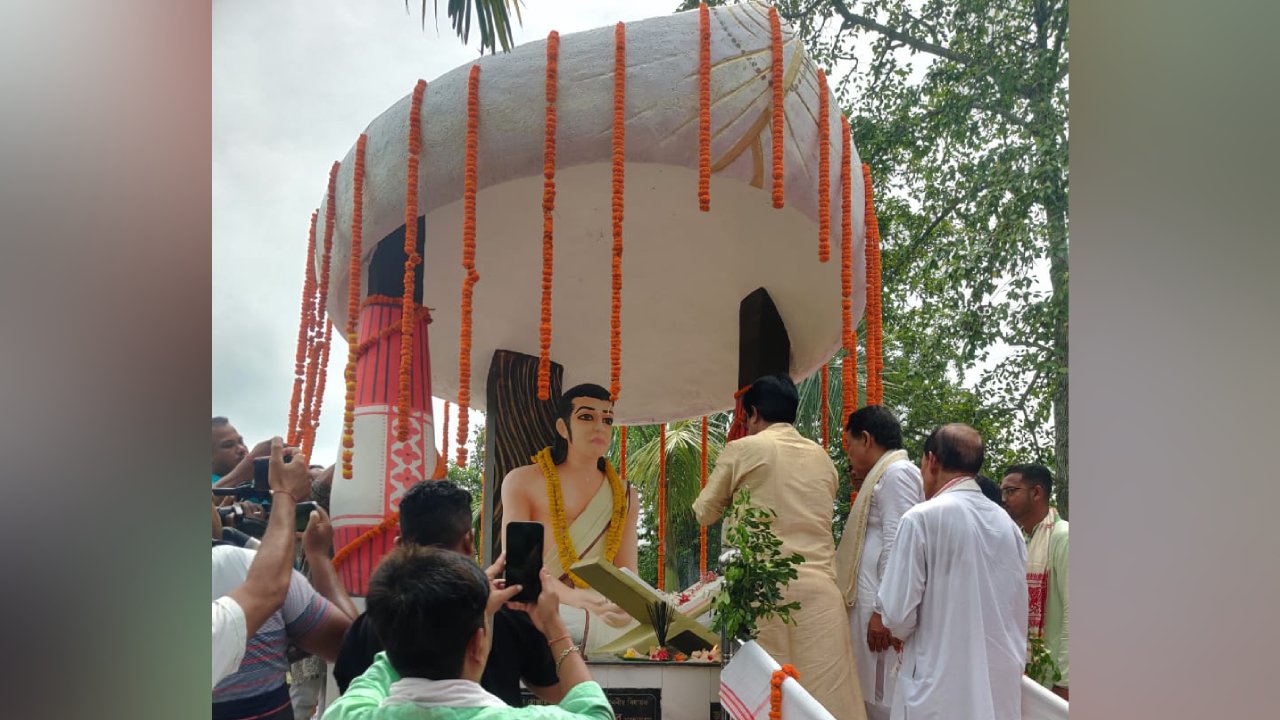HT Bureau
GUWAHATI, July 6: Chief Minister Himanta Biswa Sarma on Sunday inaugurated a landmark event titled ‘Bodoland Speaks: From Vision to Action’ at Srimanta Sankardev Kalakshetra in Guwahati, marking a significant milestone in the Bodoland Territorial Region’s (BTR) journey from conflict to peace and progress.
The event, organised under the Bodoland Happiness Mission by the Bodoland Territorial Council (BTC), aimed to highlight the socio-economic transformation that has taken place in BTR in recent years.
According to an official statement, the chief minister also launched several key publications during the programme, including BTR Communication Bridge – A Practical Resource of 1001 Words and 1001 Sentences in 18 Regional Languages, Transforming Bodoland – A Journey of Change in BTR, and Lookin’ Within: My Reflections authored by BTC Chief Executive Member (CEM) Pramod Boro.
The Annual Report of the Bodoland Happiness Mission (2024–25) was also unveiled.
Chief Minister Sarma further conferred the Bodoland Lifetime Achievers Award upon 18 distinguished individuals for their exceptional contributions to the preservation and promotion of folk culture in the BTR.
In his address, Sarma praised the Bodoland Happiness Mission as a transformative initiative that has played a crucial role in establishing peace, stability, and a sense of well-being across the BTR.
Recalling the decades of unrest that began in 1968, he said the region had once been gripped by violence, demands for self-determination, and an atmosphere of fear and agitation that disrupted lives across communities.
He stated that the situation began to change significantly after 2014 under the leadership of Prime Minister Narendra Modi, who ushered in a new era of peace and reconciliation.
Sarma emphasised that the watershed moment came in 2020, with the signing of the historic tripartite Bodo Peace Accord between the Centre, the Assam government, and factions of the National Democratic Front of Bodoland (NDFB).
This accord, he said, had laid the foundation for genuine and lasting peace in the region.
“In the past four years as Chief Minister, I have not heard a single gunshot in the BTR—a testament to the success of this peace accord,” he said, expressing gratitude to the people of Bodoland and various socio-cultural organisations for their relentless support in maintaining harmony.
Sarma underscored that sustaining peace in the region is a shared responsibility.
He acknowledged the key role being played by the Bodo community and the 26 other tribal communities residing in the BTR in nurturing peace and unity.
He added that the people’s collective commitment to peace has the potential to transform the BTR into a vibrant economic hub.
“The 21st century is not about conflict. It is about artificial intelligence, quantum physics, robotics, and machine learning. The people of BTR must embrace this new era and work together to shape a prosperous future,” the Chief Minister said.
Responding to a long-standing demand from the All Bodo Students’ Union (ABSU), Sarma announced that the Assam government will now make it mandatory for all government notifications to be translated into the Bodo language in the 13 districts inhabited by Bodo communities.
In addition to the main programme, two new initiatives were launched—Bodoland Engaged Ethnography Initiative and Bodoland Migrant Women Livelihood Support Programme.
These initiatives aim to enhance community engagement and support sustainable livelihoods for vulnerable populations, particularly women migrants in the region.
Earlier in the day, Sarma paid floral tribute to Bodofa Upendra Nath Brahma, the architect of modern Bodo identity and a symbol of peace and wisdom in the region.
The event was attended by Minister for Welfare of Bodoland UG Brahma, BTC CEM Pramod Boro, MP Jayanta Basumatary, Speaker of the BTC Assembly Kati Ram Boro, President of Bodo Sahitya Sabha Surath Narzary, and other prominent dignitaries and community leaders.
The programme reflected the Assam government’s continued focus on inclusive development and cultural affirmation in the BTR and was seen as a reaffirmation of the region’s resolve to build a future rooted in peace, identity, and progress.












